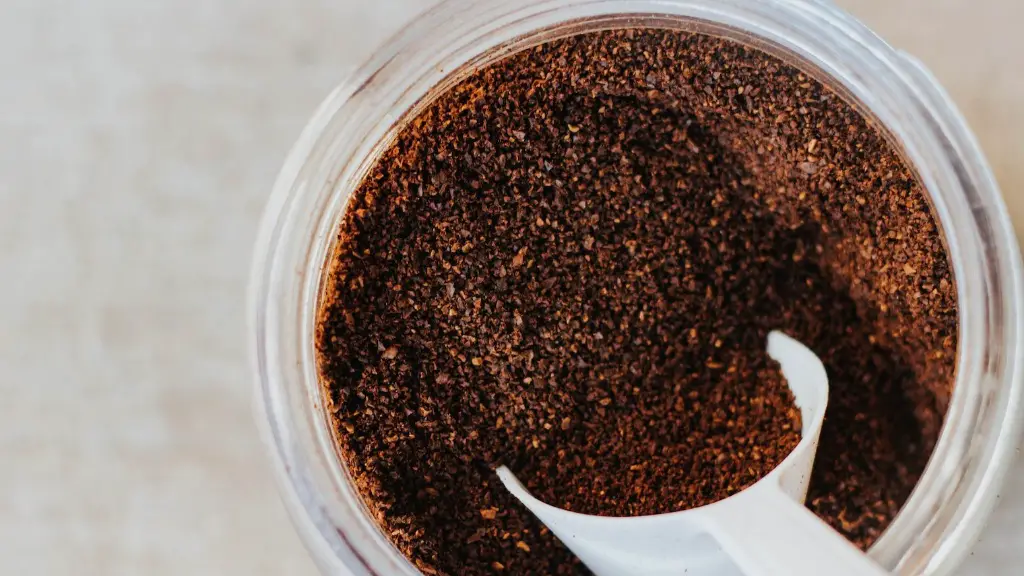Health Effects of Drinking Too Much Coffee
Coffee is packed with antioxidants and other beneficial compounds, making it an integral part of a healthy lifestyle for many people. But how much is too much? Too much caffeine can cause some uncomfortable side effects including sleeplessness, headaches, irritability and restlessness. While it’s important to keep an eye on your caffeine intake, most experts agree that drinking up to four cups of coffee a day is generally safe for most people.
What is Considered Too Much?
The amount of coffee you can drink in a day will depend on your individual tolerance and how caffeine affects you. The FDA recommends that healthy adults drink no more than 400 mg of caffeine per day – that’s about four cups of coffee. For those who are sensitive to caffeine, it may be better to limit yourself to only two cups a day.
Additionally, taking regular breaks from caffeine throughout the day can help lessen the intensity of its effects. It’s also important to note that a cup of coffee can contain anywhere between 80 to 400 mg of caffeine, depending on the type of coffee, the number of shots in your latte, and the size of your mug. So it’s important to pay attention to what type of coffee you’re drinking and how much of it you’re consuming.
Coffee and Caffeine Alternatives
For those who are concerned about their caffeine intake, there are also some coffee and caffeine alternatives that can be helpful for reducing your intake. Decaffeinated coffee typically has about 5 mg of caffeine per 8 oz cup. Alternatives such as matcha tea, chai tea, and herbal tea can be more flavorful and still provide some of the beneficial compounds that coffee does.
Drinking plenty of water is also important when consuming caffeine, as it helps to flush the caffeine out of your system. Staying hydrated can also help ensure that you don’t overdo it on occasion, as dehydration can sometimes make you feel more intense caffeine effects.
The Bottom Line
Most experts agree that drinking up to four cups of coffee a day is generally safe for most people. But, everyone reacts to caffeine differently and it is important to pay attention to how caffeine affects you. Additionally, alternatives such as decaffeinated coffee and herbal tea can help reduce the overall amount of caffeine you consume in a day. Drinking plenty of water and taking regular breaks from caffeine throughout the day can help lessen the intensity of its effects.
Implications of Caffeine Consumption on Sleep
A study by the American Academy of Sleep Medicine showed that caffeine consumption affects sleep patterns and the overall quality of sleep. Caffeine can take up to eight hours to clear from the body, so for people who are sensitive to it, reducing consumption before bedtime is recommended. Additionally, the study found that consumption of caffeine six hours before bedtime was associated with greater sleep latency, or difficulty falling asleep, poor sleep quality, increased wake time and fatigue.
Drinking coffee in the morning or early afternoon can be a great way to get a mental boost, but it is important to consider other effects, especially if you have trouble sleeping. One way to ensure that your caffeine intake is not impacting your sleep is to avoid drinking coffee in the evening or keep your intake to no more than two cups a day.
Effects of Caffeine on Mental and Physical Performance
Caffeine has been studied for its ability to improve mental and physical performance. Studies have found that caffeine can increase alertness and focus, as well as improve reaction time and reduce fatigue. It has also been found to improve endurance and physical performance, especially when taken before physical activity.
Additionally, there are many potential cognitive benefits associated with caffeine consumption. A study done by the University of Leeds found that drinking coffee can enhance long-term memory and improve task organization and accuracy. While these effects can be helpful in improving overall performance, it is important to remember that too much can also have a negative effect.
The Effects of Caffeine on the Body Over Time
Overconsumption of caffeine over a long period of time can have some potentially harmful effects on the body. Caffeine can increase your heart rate, raise blood pressure, and cause restlessness and shakiness. Overindulging in caffeine can also interfere with the absorption of essential nutrients and vitamins, such as calcium and magnesium.
Additionally, it can also cause insomnia, anxiety and digestive issues including stomach pain and nausea, making it important to pay attention to how much you’re consuming. If you find yourself having negative reactions to caffeine, it is best to reduce your intake or switch to a decaffeinated beverage.
Coffee and Inflammation
Coffee has been found to have anti-inflammatory properties, which may be beneficial in reducing inflammation in the body. A 2016 study in the journal Nutrition & Metabolism found that coffee consumption was associated with a reduction in markers of inflammation.
Another study published in the journal Circulation found that coffee consumption was also associated with a lowered risk of cardiovascular disease, which is linked to inflammation. More research is still needed in this area, but findings so far suggest that coffee can be a powerful tool for reducing inflammation in the body.
Coffee and the Probability of Health Benefits
Coffee has been linked to a variety of health benefits including improved cognitive performance, improved physical performance, a reduced risk of certain diseases and better overall health.
A 2014 study showed that regular coffee consumption was associated with a lower risk of Alzheimer’s disease, Parkinson’s disease, type 2 diabetes and certain types of cancer. It is important to note, however, that while coffee can have many health benefits, overindulging in caffeine can have some negative effects on the body.
Impact of Coffee on Dehydration
Caffeine can act as a diuretic, meaning it can cause you to lose more fluid than you take in. This can lead to dehydration, which can cause fatigue, headaches and other uncomfortable side effects.
Additionally, drinking too much coffee can also interfere with the absorption of essential nutrients and vitamins, such as calcium and magnesium. Therefore, it is important to ensure that you’re getting enough water throughout the day to stay hydrated and counteract any dehydration caused by caffeine.
The Takeaway
How much coffee you can drink in a day will depend on your individual tolerance and how caffeine affects you. Most experts agree that drinking up to four cups of coffee a day is generally safe for most people. However, it is important to note that taking regular breaks from caffeine throughout the day, drinking plenty of water, and opting for decaffeinated coffee can help reduce your overall caffeine intake.
Additionally, there are also potential health benefits associated with coffee consumption. Studies have found that regular coffee consumption has been linked to a reduced risk of certain diseases, as well as improved cognitive and physical performance. However, overconsumption of caffeine can also lead to dehydration and negative reactions, such as fatigue, headaches and anxiety, so it is important to pay attention to how much you’re consuming.





